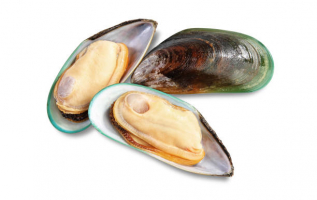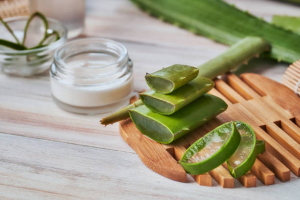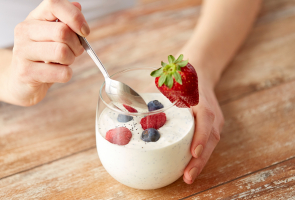Top 10 Health Benefits of Eating Oranges
Oranges are a low-calorie, high-nutritional citrus fruit. Oranges contribute to strong, clean skin and can help lessen a person's risk of various ailments when ... read more...consumed as part of a healthy and diverse diet. Oranges are popular because of their inherent sweetness, the variety of varieties available, and the variety of applications. Let's look at the best health advantages of eating oranges.
-
One orange has almost 80% of the daily Vitamin C requirement. This essential ingredient promotes collagen production, reduces inflammation, and improves the body's capacity to utilize fat as a fuel source both during activity and during rest. A lack of Vitamin C in the blood has also been linked to increased body fat and waist measurements.
Vitamin C also aids iron absorption, which can improve oxygen availability and lessen tiredness. This is especially significant for premenopausal women who lose iron via menstruation, as well as those who eat a plant-based diet because iron from plant sources is less readily absorbed. Vitamin C is also an antioxidant that fights age and is required for DNA repair and serotonin generation. The latter promotes happiness and sleep. Vitamin C is abundant in oranges. One orange provides 116.2 percent of the daily requirement for Vitamin C. A high intake of Vitamin C is linked to a lower risk of colon cancer because it aids in the removal of free radicals that destroy our DNA.

High in Vitamin C 
High in Vitamin C -
A medium orange has roughly three grams of fiber or 12% of the daily need. Orange fiber aids digestion regulates blood sugar and insulin levels, increases feelings of fullness, and may even assist in healthy sleep. Soluble fiber accounts for about two-thirds of an orange's three grams of fiber.
This form of fiber has been demonstrated to help lower blood cholesterol and protect against interior abdominal fat known as visceral fat. A five-year study of individuals indicated that for every 10-gram increase in soluble fiber ingested, the rate of visceral abdominal fat buildup fell by 3.7 percent. That's important: Carrying more visceral fat is associated with higher inflammation and an increased risk of chronic illnesses such as type 2 diabetes, hypertension, and various malignancies.

Provide gut- and health-protective fiber 
Provide gut- and health-protective fiber -
Oranges, being a rich source of the antioxidant vitamin C, may aid in the prevention of cancer-causing free radicals. Although enough vitamin C consumption is important and helpful, the amount required for the intended therapeutic effect on cancer is greater than most people can realistically ingest.
However, a 2015 research connected grapefruit and orange juice to an increased risk of skin cancer. Researchers discovered that persons who ingested a lot of whole grapefruit or orange juice were more than a third more likely to acquire melanoma than those who didn't. This might be due to citrus chemicals with photocarcinogenic effects. More study is needed to validate the link between orange intake and cancer risk.

Brings down the danger of cancer 
Brings down the danger of cancer -
Oranges' fiber helps to monitor glucose levels, making them a must-have for those with diabetes. Oranges also contain simple sugars. The natural product sugar in oranges, fructose, can help reduce blood sugar levels from rising too high. It has a glycemic index of 40, and foods that fall below 50 are considered low in sugar. In any event, this does not imply that you consume a huge number of oranges in a single sitting. Eating in excess might cause insulin spikes, thus eating in moderation can be good.
Oranges have no sodium, which helps people stay under their daily sodium limit. A cup of orange juice, on the other hand, can increase daily K consumption by 14%. Maintaining a minimal salt intake is critical for blood pressure control. However, boosting potassium consumption may be just as significant for lowering a person's risk of high blood pressure since it can assist encourage blood vessel relaxation and opening. Increasing potassium consumption, according to the Office of Dietary Supplements (ODS), can lower the risk of high blood pressure and stroke.

Controls blood sugar levels 
Controls blood sugar levels -
A medium orange weighing 131 g has 3.14 g of fiber, which accounts for roughly 10% of an adult's daily fiber requirement. Several studies have discovered that fiber can ameliorate some of the variables that contribute to the development and progression of diabetes. One 2019 study, for example, discovered that taking 4 g of dietary fiber supplement per day did not lower blood glucose levels but did alter how the body reacts to insulin. Diabetes can be exacerbated by low insulin sensitivity. Obesity and overweight can both contribute to the development of type 2 diabetes, thus weight control is particularly crucial.
Because fiber is processed more slowly by the body than other nutrients, it can help people feel satisfied for longer and lessen their need to snack throughout the day. Following a diet heavy in fruits and vegetables can help with blood sugar management and minimize the risk of type 2 diabetes and disease development. A diabetes-friendly diet, however, should contain nutritious meals from a range of food categories.

Prevent diabetes 
Prevent diabetes -
Orange antioxidants help to protect skin from free radical damage, which is known to create signs of aging. Even at the age of 50, eating an orange every day will help you seem younger! Consuming adequate vitamin C can aid in the maintenance of skin health and beauty. Vitamin C aids in the formation of collagen. Collagen provides skin support, facilitates wound healing, and increases skin strength. According to the findings of a 2015 study, dietary vitamin C enhanced how respondents evaluated their skin's health and how healthy it truly was, including appearance, wrinkling, elasticity, and roughness.
It is better for your skin to choose oranges when they are at their ripest. They do not ripen or enhance in quality after plucking, unlike certain other fruits. Oranges should be stored at room temperature and away from direct sunlight. In the winter, it might be difficult to find ripe fruits and vegetables. However, this is an excellent time to purchase citrus fruits. Winter is the prime season for oranges and other citrus fruits.

Prevents skin damage 
Prevents skin damage -
Heart disease is presently the leading cause of mortality worldwide. If consumed at appropriate levels, a variety of minerals and plant compounds contained in oranges, including vitamin C, flavonoids, and carotenoids, may help improve heart health and lower the risk of heart disease. Furthermore, eating oranges and drinking orange juice on a daily basis may help minimize risk factors for heart disease.
Consuming adequate fiber, according to a 2017 assessment of prior meta-analyses, can greatly lower the chance of heart disease developing and being deadly. The evaluation attributes this impact to its capacity to decrease blood cholesterol levels. A cup of orange juice contains 14% of a person's daily potassium intake. According to the ODS, those who consume more potassium may have a decreased risk of stroke and other cardiovascular disorders. They ascribe this mostly to the effects of potassium on blood pressure.

Helps promote heart health 
Helps promote heart health -
Aside from safeguarding heart health, eating oranges on a daily basis may help lower the risk of other health disorders such as some forms of cancer and diabetes. Citrus-rich diets may help lessen the risk of numerous forms of cancer, including:
- Lung cancer
- Mouth cancer
- Stomach cancer
- Head and neck cancer
According to one research of over 7,000 Australian adults, individuals with moderate overall fruit diets that included oranges and other citrus fruits were 36% less likely to be diagnosed with diabetes after 5 years than those with the lowest fruit intakes. Keep in mind that this study discovered advantages associated with eating fruits in general, rather than the benefits of eating whole oranges in particular. Furthermore, it did not discover the same favorable impacts in persons who drank fruit juice. This is most likely due to the fact that fruit juice has far less fiber and has a higher influence on blood sugar than whole fruits.

Diets high in citrus fruits may protect against chronic diseases 
Diets high in citrus fruits may protect against chronic diseases -
Consuming fruits, which are abundant in vitamins, minerals, and antioxidant components, on a regular basis might help maintain good immune function. Oranges and other citrus fruits are high in vitamin C. This vitamin is essential for the proper functioning of immune cells such as natural killer cells. It is also required for apoptosis, a process in which old, damaged cells die and are subsequently cleaned out and replaced with new healthy ones.
Vitamin C is a potent antioxidant that aids in the prevention of oxidative damage, which can harm immune function and raise disease risk. Many additional components in oranges, such as hesperidin and naringenin, are anti-inflammatory. Chronic inflammation can impair immune response, thus consuming anti-inflammatory foods on a regular basis may assist promote immunological function. Oranges also include fiber, which can aid in immune system health. Fiber is required by the body in order to maintain a healthy balance of gut flora, which influences immune system growth and function.

May help support immune health 
May help support immune health -
Oranges may also make your hair glossy, silky, gorgeous, and bouncy. Crush oranges and create a new paste out of them to use for hair development. After that, saturate your hair with the juice. Make sure your hair is thoroughly greased. Keep this mixture on your head for about 30 minutes, then thoroughly rinse with cold water. Wash your hair with a herbal shampoo and then condition it well. You will be astounded by the outcomes.
Oranges are also necessary for hair development. It is high in Vitamin B12 and Vitamin E, which are essential for having long, thick, and attractive hair. To achieve the greatest results, simply oil your hair first. After that, add a fresh orange and honey flavor to your hair and let it on for 30 minutes. After rinsing with water, wash with a herbal shampoo. This will assist you in combating hair loss and baldness.
Oranges are also a wonderful hair conditioner. Simply combine orange juice, honey, and water. After shampooing, thoroughly combine this paste and apply it to your hair. You may leave it for five to 10 minutes. Wash your hair with cold water. If you use this mixture every time you shampoo, you will reap enormous benefits. The gorgeous, juicy, tart orange fruits will greatly enhance your hair.

Benefits for hair 
Benefits for hair































